Measure 110 rollback: Oregon Senate sends bill recriminalizing drug possession to Kotek
- Oops!Something went wrong.Please try again later.
In 2020, Oregon voters passed Measure 110, shifting the state's approach to drugs by eliminating criminal penalties for the possession of small amounts.
On Friday, the state Legislature sent a bill recriminalizing drug possession to Gov. Tina Kotek's desk, further undoing Oregon's first-in-the-nation law. The move comes as lawmakers have faced pressure to respond to Oregon's drug crisis.
Senators passed House Bill 4002 by a vote of 21-8. The House passed the bill by a vote of 51-7 on Thursday.
Measure 110 rollback: How Oregon House Bill 4002 works

Class E violations, created by Measure 110, are repealed under HB4002. Instead, a person stopped with small amounts of illicit drugs will face an entirely new “drug enforcement misdemeanor” as of Sept. 1.
If a county offers a deflection or diversion program and a prosecutor uses them, the individual could remain on probation for 18 months. If they violate probation, the person could face a 30-day jail sanction. And if probation is revoked, the individual could be ordered to a maximum of 180 days in jail.
The bill also:
Addresses reducing barriers to accessing substance use disorder medications.
Requires the Alcohol and Drug Policy Commission to study access to opioid use disorder treatment and interventions and report its recommendations to the Legislature.
Modifies the definition of drug delivery charges.
Enhances penalties for drug dealers selling near homeless shelters, treatment centers and parks.
Includes automatic expungement of records.
Requires the Oregon Criminal Justice Commission to track arrest and prosecution data for the new possession crime.
Extends welfare holds for someone admitted for intoxication or controlled substances from 48 hours to 72 hours.
Establishes grants for jails to provide medications for opioid use disorder treatment.
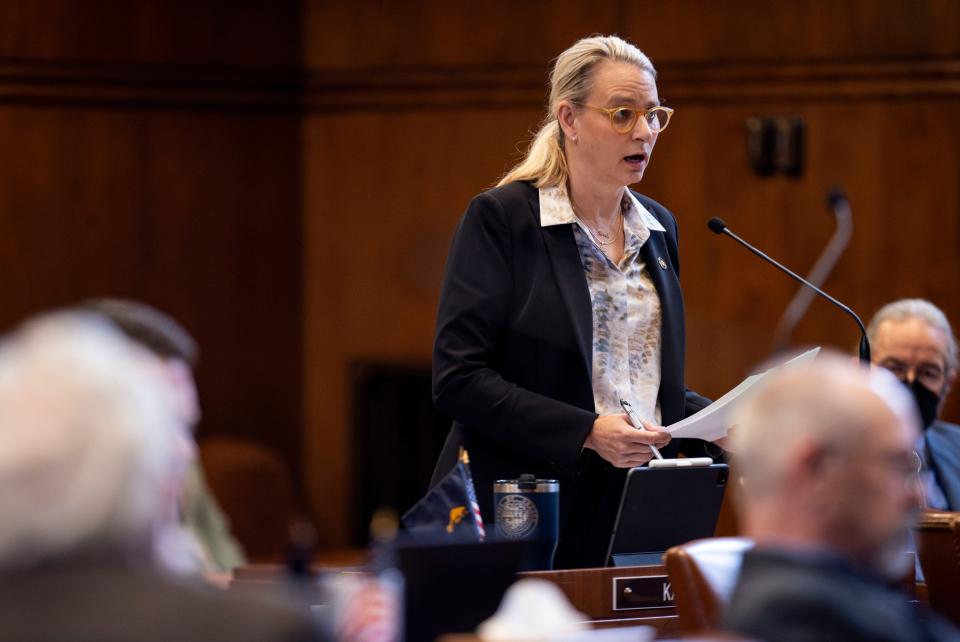
Work on HB4002 began months ago with the creation of the Joint Committee on Addiction and Community Safety Response. Led by Rep. Jason Kropf, D-Bend, and Sen. Kate Lieber, D-Portland, the committee was tasked with "ensuring law enforcement has the tools to effectively keep our communities safe, that addiction treatment services are accessible for people who need help, and that the state is preventing people from falling into addiction," according to a release announcing its creation in September.
The committee held hearings with addiction service providers, people in recovery, law enforcement, researchers, agency staff, community groups and other stakeholders. Hundreds submitted testimony online and more than 100 provided testimony at the Capitol during public hearings for the bill.
What Measure 110 was intended to do
Measure 110 decriminalized drug possession for small amounts and redirected marijuana tax revenues to substance use treatment.
Critics of Measure 110 say it did little to incentivize drug users to seek treatment. Those stopped for possessing a small amount of drugs receive a $100 citation. The citation can be dismissed if the person calls a 24-hour hotline and goes through an addiction screening within 45 days of receiving the ticket. If they don’t, there is no punishment for not paying the citation.
State auditors reported just 1% of those who received citations in the first year after the law took effect called the hotline. During the first 15 months Measure 110 was implemented, the hotline had a total of 119 calls, auditors wrote.
Oregon's bill to recriminalize drug possession receives praise, criticism
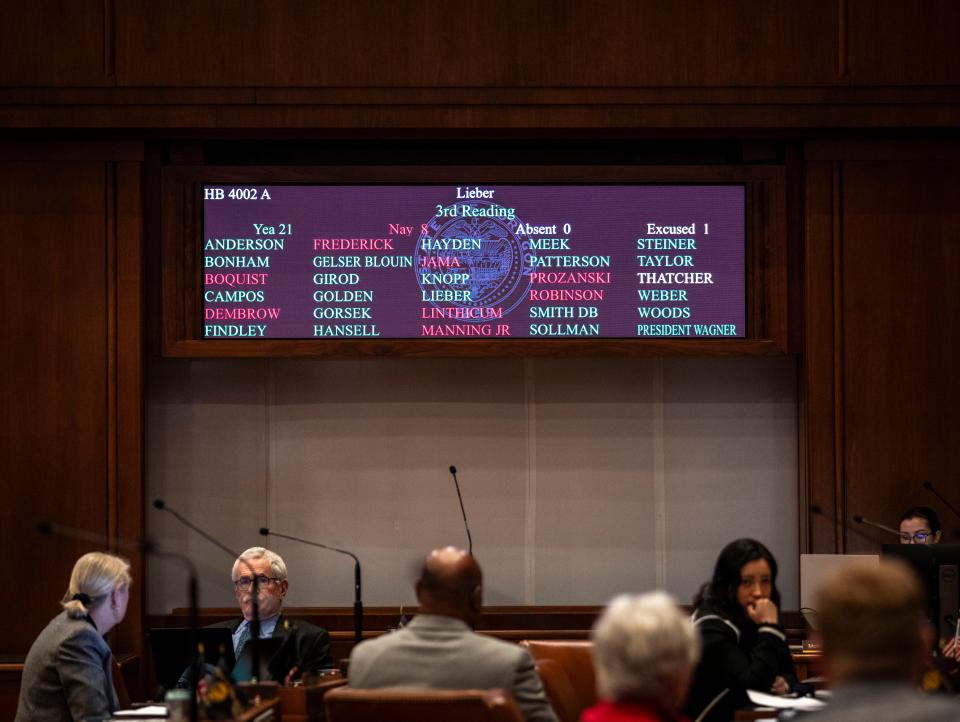
Supporters of HB4002 say the bill prioritizes treatment before jail, offering different opportunities to avoid jail time to those charged with the new misdemeanor created by the legislation.
Opponents say the bill will do more harm than good without requiring counties to offer diversion or deflection programs and with an ongoing public defense crisis.
Among Senators who spoke in opposition was Sen. Floyd Prozanski, D-Eugene, who sat on the Joint Committee. He referred to the bill as a sledgehammer being used to put in a finishing nail. Measure 110, Prozanski said, went into effect just three months after passage and funding went out the door 18 months afterward.
“Criminalization is not supported by the available data,” he said. “4002 will take us down a path that I cannot support.”
Sen. Lew Frederick, D-Portland, said the bill had “too many flaws” to support and was concerned it was attempting to use the same tactics of the past, which had failed. A reporter for 17 years in Portland, Frederick said he saw firsthand the effects of the war on drugs. He said he could not have faith there would be “equal compassionate treatment” for every community given the history of other anti-drug efforts.
Sen. Michael Dembrow, D-Portland, said he remained concerned the bill was taking Oregon down a dangerous path and making the same mistakes of Measure 110 in reverse, recriminalizing before the infrastructure is in place to handle new criminal cases.
The Oregon Public Defense Commission said it would need to hire an additional 39 full-time public defenders to provide the representation needed for the estimated new cases under the bill. Nearly 3,000 people are currently unrepresented in the state.
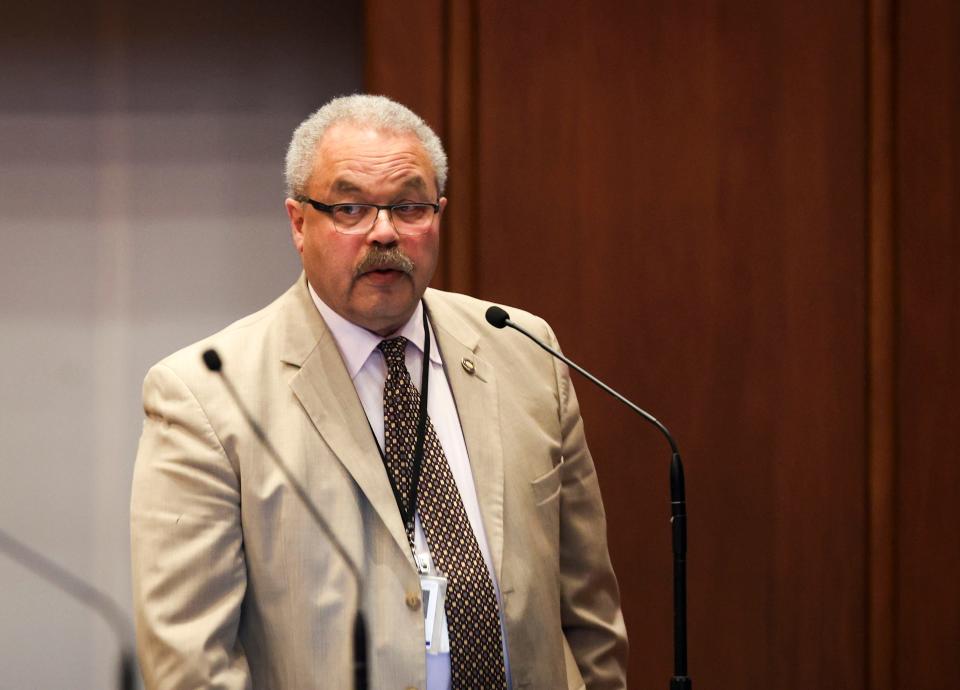
Lieber said she acknowledged concerns but lawmakers could not lag in taking action with a looming ballot measure initiative to repeal Measure 110 and an ongoing addiction crisis.
"We must take action. The drug crisis is killing Oregonians and threatening the health and safety of our communities. The Oregon Drug Intervention Plan is a treatment-focused approach that gives providers and law enforcement the tools they need to keep people safe and save lives,” Lieber said.
She said the bill represented a step forward in reimagining what the criminal justice system could be.
It was an explanation rejected by groups including the ACLU of Oregon.
“Oregonians don’t deserve lawmakers who are passing really bad bills for political expediency,” said executive director Sandy Chung in an interview before the vote. She and other opponents were resigned to the bill’s looming passage on Friday.
Tera Hurst, executive director of the Oregon Health Justice Recovery Alliance, said organizations had already raised their concerns and were shifting their focus to reducing the harm they believe the bill will inflict on communities in Oregon. Hurst said lawmakers could have focused on housing, services, and partnerships with police and providers for results instead of criminalization.
On the floor, senators shared stories of how they had been impacted by addiction. Sen. Mark Meek, D-Canby, had the ashes of his uncle sitting on his desk. He passed away in 2010 and battled an ongoing heroin addiction, according to Meek.
“Allowing people to overdose and die is not humane,” Meek said.
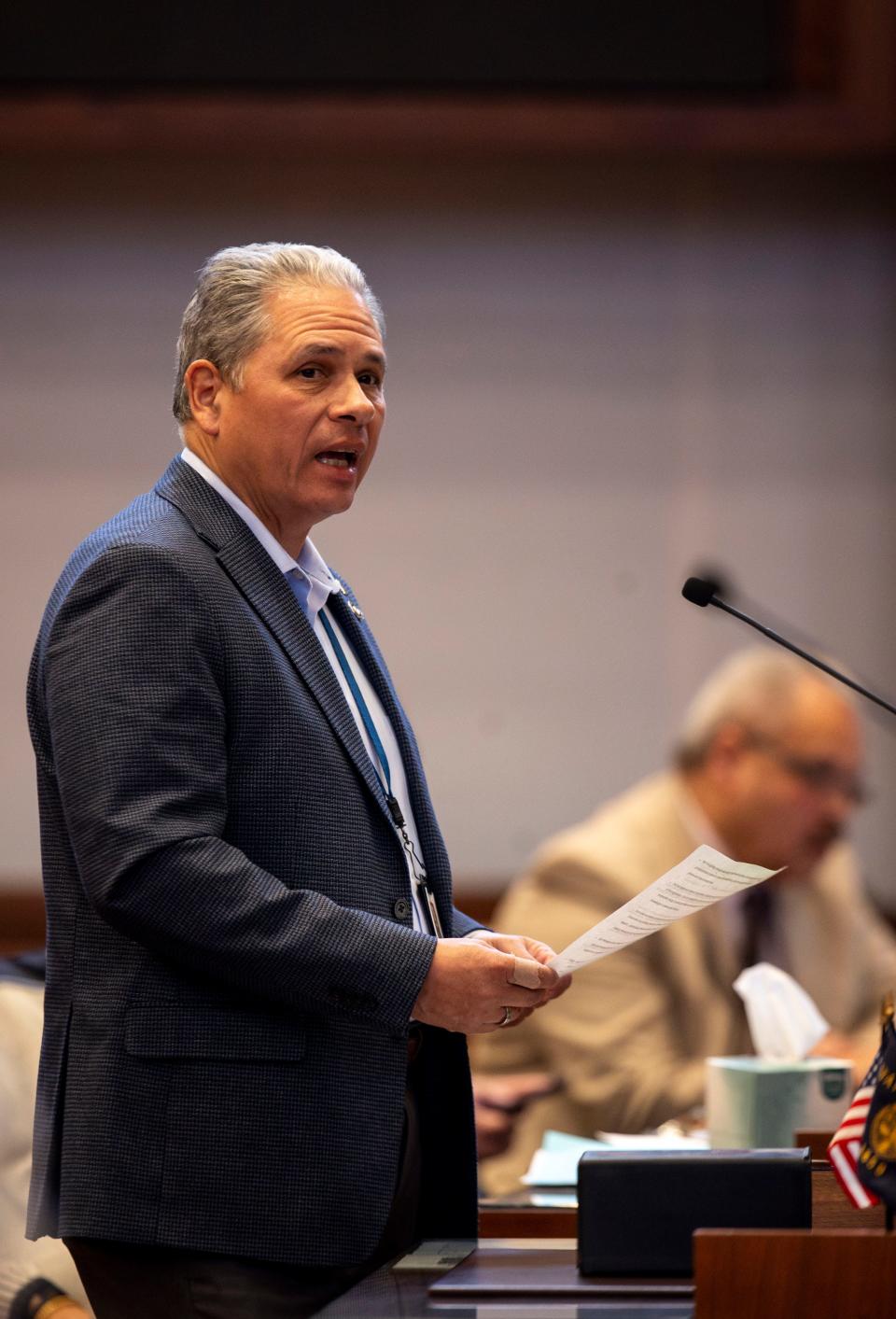
Democrats made it clear their support came with concerns. Several said they would be closely monitoring the implementation of the bill to ensure concerns raised of disparate impacts on Oregonians of color wouldn’t materialize.
“There are hard votes and there are harder votes and then there is HB4002,” said Sen. Sara Gelser Blouin, D-Corvallis.
Gelser Blouin said she was voting in favor of the bill because it was the best chance lawmakers had to stop the ballot measure to fully repeal Measure 110. She said she was choosing the “lesser evil.”
The coalition behind the ballot measure said Thursday it would abandon its efforts if Kotek signs the bill into law.

Republicans Friday evening applauded the bill's passage. At the beginning of the legislative session, they had called for stricter penalties and up to a year in jail for possession of drugs. On the floor, Republicans said the bill was not perfect but was a victory for the state.
"The Oregon Legislature just ended Oregon’s experiment with decriminalizing drugs," Sen. Tim Knopp, R-Bend, said after the vote.
Lawmakers also passed an accompanying $211 million funding package to support HB4002.
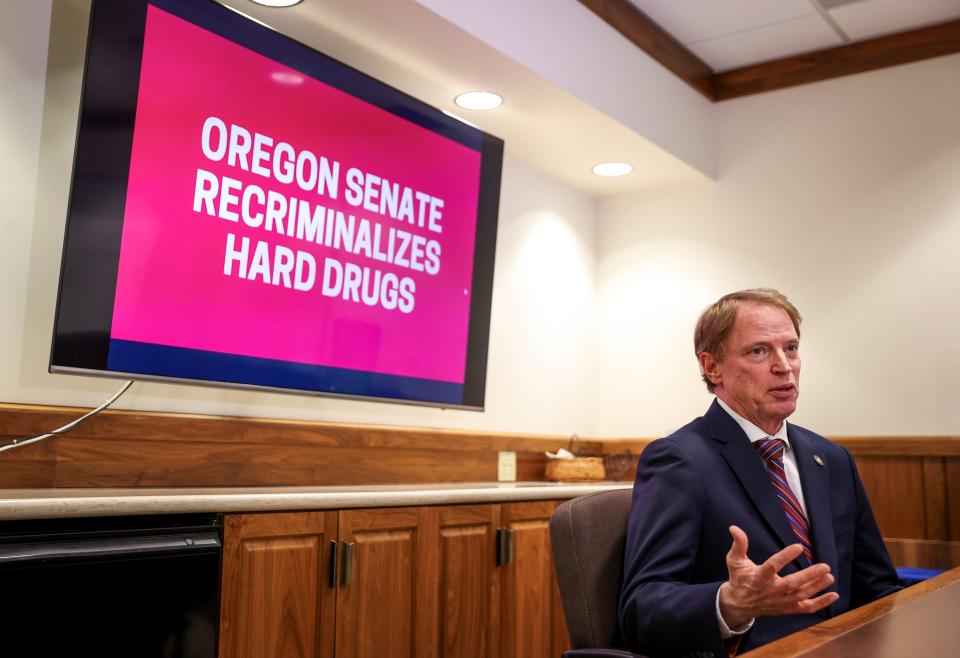
Dianne Lugo covers the Oregon Legislature and equity issues. Reach her at dlugo@statesmanjournal.com or on Twitter @DianneLugo
This article originally appeared on Salem Statesman Journal: Oregon Senate passes bill recriminalizing drug possession

